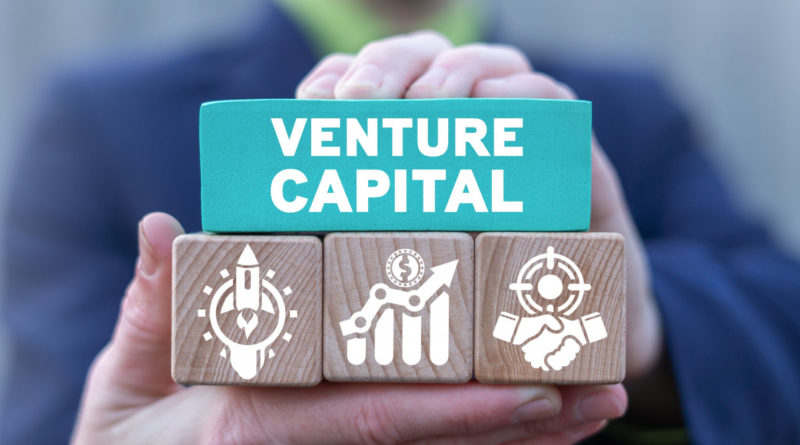ASEAN | ChatGPT: How ASEAN’s startups and VCs can harness AI as a superpower
An illustration of venture capital funding. (Shutterstock/Panchenko Vladimir)
.
.
![]()


.
Even though the cradle of generative Artificial intelligence (AI) tech is squarely in the United States, its influence is nothing short of global. Founders and funders in Indonesia would be making a big mistake to think that AI doesn’t apply to their business.
For those of you who are not yet savvy on the topic, AI, namely its generative branch, is no longer the stuff of science fiction. It’s here and now, transforming businesses and societies at a rapid clip.
Generative AI, as a subset of AI, uses machine learning models to generate new, original content. It is like having an army of virtual creators at your disposal, with some capable of producing anything from poetry to prose, code to music. But beyond creating content, generative AI can also simulate complex systems, generate data for training other AI models, and even design products based on a given set of parameters. These capabilities can greatly accelerate operations, from automating customer service responses to designing and prototyping new products.
Even though the cradle of generative AI tech is squarely in the US, its influence is nothing short of global. That’s why, as an entrepreneur or venture capitalist in Indonesia, it would be a big mistake to think that AI doesn’t apply to your business.
As founders and funders, there are two ways we need to think about generative AI. The first is to consider what opportunities are out there in the local ecosystem worth investing in or acting upon. The second is to understand the risk it may pose to your existing business model (either today or in the future). Frankly speaking, some founders may be out of business in a matter of months. So the key is to marry both schools of thought into one action plan – and do so quickly. ![]()

We have begun running AI risk analyses and consultations across our portfolio. This is to determine the likelihood of generative AI posing a real threat to their business models. Using a proprietary framework and scorecard we cooked up, each company will get a score of one to five (one being “low risk” and five being “severe risk”). If we think a company has a “high” or “severe” risk of AI disruption, we will proceed to work closely with the founding team on a recommended action plan. This may include anything from pivots to the core business model to product integration advice.
Because we aim to be the most value-added investor on the cap table for every company we back, we see this as our responsibility.
Unlike the landscape in the US, Indonesian startups are most often addressing fundamental societal challenges (think financial inclusion and helping underbanked MSMEs do business online, etc). So far, not a lot of them are not working on large language models or machine learning that can rival what’s coming out of Silicon Valley, but that doesn’t mean generative AI has no role to play here.
I dare to say that generative AI can supercharge any business, whether it is by driving operational efficiency or by being integrated directly into an app, platform, or software. It’s not just an add-on; it’s a game-changer. Here are a few examples of what I mean:
In e-commerce, generative AI can put together product descriptions, help representatives respond to customer inquiries, and personalize product recommendations. Instead of having a team of writers spend countless hours creating bite-sized text chunks, a well-trained AI model can make thousands of unique descriptions in a fraction of the time. This not only saves loads of time, money, and energy but also ensures consistency and quality across the board. It is a prime example of manually bolstering operational efficiency – and I’m not even being creative.
In fintech (and perhaps more in the context of API integration), generative AI can be used to identify fraud patterns and come up with investment strategies. It can pore over vast amounts of data, spot anomalies and patterns that the human eye might miss, and generate alerts or actions based on its findings. This can enhance the security and performance of fintech platforms, giving them an edge over competitors.
Generative AI in healthcare can analyze medical images, create health reports, and predict disease progression. It can detect early signs of diseases like cancer or Alzheimer’s from CT scans and MRIs, and compile patient health reports, allowing doctors to concentrate on diagnosis and treatment.
Some ASEAN startups have already begun using generative AI in their core offerings. In Indonesia, startups like Kata.ai are far ahead of the pack, offering large corporates their own custom chatbots to automate customer service in Bahasa Indonesia. The team had been into this long before ChatGPT exploded, and their chatbots were creating millions of dollars in new revenue and cost savings for local heavy-hitters like Telkom Indonesia, BRI Group, and others. With the AI boom of 2023 and new APIs available, this team is likely one for local investors to look at with fresh eyes.
Another interesting case in the region is Singapore-based Maestro Labs’ flagship product MailMaestro. It is an Outlook plug-in that uses GPT tech to quickly compose high-quality emails. But it also addresses a deeper issue. Many corporate employees use ChatGPT for emails, unknowingly risking privacy as the AI ‘remembers’ the confidential information they input. This means they are potentially exposing trade secrets and insider intel to anyone using ChatGPT.
MailMaestro is a tool that keeps all confidential information safe, thus giving corporates an avenue to allow their employees to still use AI for emails without implementing a companywide ban.
ASEAN’s tech founders must start by understanding the technology and its potential applications in their industry. They need to be aware of the latest developments in AI and machine learning and understand how these developments can be applied to their businesses. This might involve hiring AI specialists, partnering with research institutions, or investing in AI training for staff.
Once they’ve grasped the basics, founders should begin exploring how to integrate generative AI into their operations and product development. This could mean using it to automate mundane tasks, enhance user experiences, or create new, innovative products.
Investors, too, have a crucial role to play. Every VC right now should be actively working to AI-proof their existing portfolio companies by working with them on ways to use it as a protective moat. This may require resources and further investment.
***
The writer is the principal of Comms at AC Ventures, a venture capital firm focused on Indonesia and ASEAN. The views are personal.
Leighton Cosseboom
Singapore
● Tue, May 23, 2023
 Memento Maxima Digital Marketing
Memento Maxima Digital Marketing
@[email protected]
SPACE RESERVE FOR ADVERTISTMENT


 Memento Maxima Digital Marketing
Memento Maxima Digital Marketing






